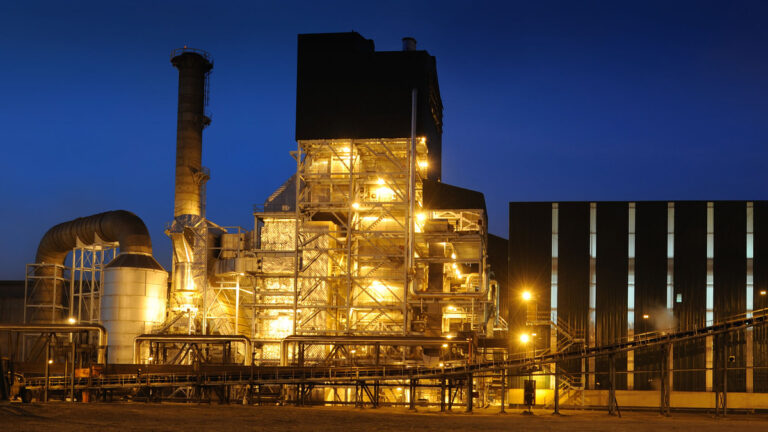The construction of a chemical plant is a highly complex and technically demanding task that requires meticulous planning, expert execution, and a deep understanding of chemical processes. EPC (Engineering, Procurement, and Construction) contracts are the backbone of such large-scale projects, offering a single-point responsibility to ensure on-time delivery, cost control, and compliance with safety and environmental regulations. Today, modern EPC services are no longer limited to traditional construction — they incorporate advanced technologies, sustainability principles, and smart project management techniques to deliver world-class chemical facilities.
Integrated Process Simulation during Design Phase
Chemical processes involve complex reactions and interactions. EPC firms now use simulation software like Aspen HYSYS or CHEMCAD during the engineering phase to simulate real-world conditions. These digital models help in identifying heat integration opportunities, reaction bottlenecks, and safety limits before actual construction. This proactive analysis reduces errors, shortens commissioning time, and improves plant efficiency from day one.
Material Selection Based on Corrosion Mapping
Chemical plants often handle acids, bases, solvents, and corrosive gases. Generic material selection can lead to premature failures. EPC contractors now use site-specific corrosion mapping and fluid compatibility studies to choose the right materials—like SS316L, Hastelloy, PTFE-lined carbon steel, or duplex stainless steel. This ensures longer life of piping, equipment, and structures while minimizing maintenance costs.
Modular Construction Approach
Instead of building everything on-site, modular construction involves fabricating plant sections or “modules” in a controlled off-site facility. These modules are then transported and assembled on location. For chemical plants, this method shortens the construction timeline, reduces labor risks, and ensures better quality due to fabrication in controlled conditions. It is especially useful for projects in remote or hazardous areas.
Advanced Safety Layer Integration
Safety in chemical plants is non-negotiable. EPC contractors integrate multi-layered safety systems into the design. This includes Safety Instrumented Systems (SIS), Emergency Shutdown Systems (ESD), flame and gas detectors, fire suppression networks, and safety relief valves. All components are chosen based on required Safety Integrity Levels (SIL), ensuring plant operations meet global safety standards.
Dynamic Project Phasing for Regulatory Compliance
Obtaining environmental and safety clearances is a critical and often time-consuming part of chemical plant construction. EPC teams divide large projects into execution phases that align with regulatory milestones. For instance, utility sections may be commissioned first to expedite partial approvals, enabling faster testing, training, and early revenue generation.
Digital Twin for Real-Time Project Tracking
A digital twin is a virtual replica of the chemical plant that updates in real-time. EPC firms use this to monitor project progress, simulate scenarios, and coordinate tasks among engineering, procurement, and site teams. Once operational, the digital twin continues to provide valuable data for performance monitoring, predictive maintenance, and operational optimization.
Smart Procurement via AI and Data Analytics
Procurement delays can significantly impact timelines. Modern EPC companies leverage AI-powered tools for smart procurement—tracking global supply chains, forecasting price trends, and selecting vendors based on historical performance. Automated purchase workflows ensure timely delivery of equipment and reduce risk of cost overruns.
Zero-Discharge Planning in Early Design
Chemical plants are under increasing pressure to comply with environmental norms. EPC firms now integrate Zero Liquid Discharge (ZLD) systems in the initial design phase, ensuring water used in processes is completely recycled and reused. This minimizes environmental impact and supports clients in achieving regulatory and sustainability goals.
Vendor-Neutral Equipment Integration
Unlike turnkey suppliers who favor their own branded products, modern EPC contractors design systems that are compatible with a wide range of OEMs. This allows the client to choose the best equipment based on cost, availability, and performance. It also simplifies future upgrades and replacements without being locked into proprietary systems.
EPC for chemical plants has evolved from a conventional design-and-build approach into a sophisticated, tech-driven, and sustainability-focused process. By integrating advanced design tools, environmental safeguards, digital technologies, and smart project management techniques, modern EPC firms are setting new benchmarks in delivering safe, efficient, and future-ready chemical facilities. For stakeholders in the chemical industry, choosing the right EPC partner can mean the difference between a compliant, profitable plant and a costly, delayed project.

